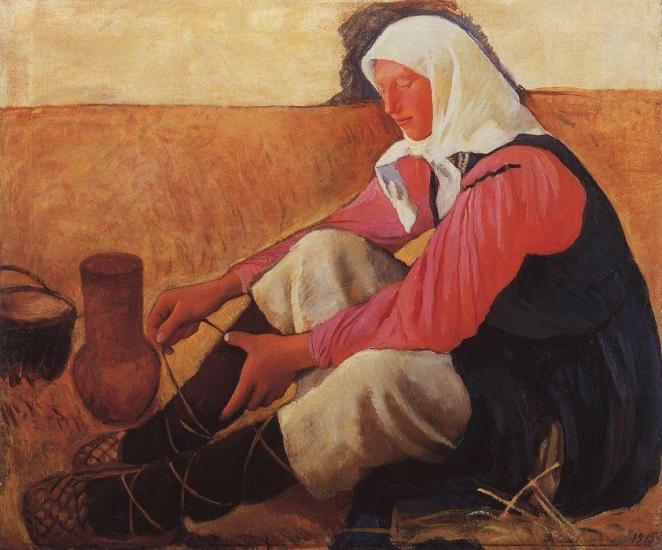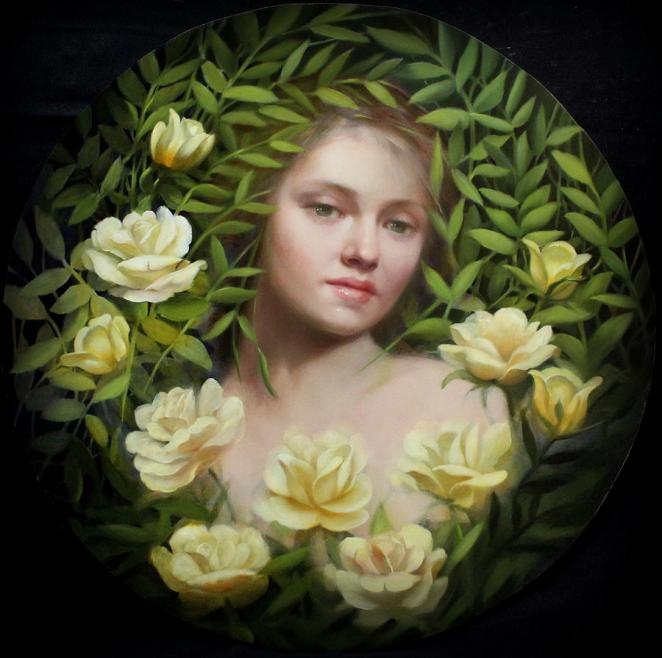We here at Writers of Puget Sound have spent months now thinking and writing about how COVID19 has been affecting the country as well as us personally. After some of our initial responses, we will continue adding to this particular post with the different prompts we’ve used for initiating conversation, reflection, and creativity!

Hope, George Frederick Watts, 1886, http://totallyhistory.com/george-frederick-watts-paintings/
“Coronawards!”
At the end of the Revolutionary War in 1783 the British army marched out of New York City to the ships that would carry them home accompanied by their bands playing “The World Turned Upside Down!”
Today, almost 250 years later, the Coronavirus pandemic once again has turned the world upside down. It’s been almost fifty years since the end of the Vietnam War, the last real crisis in America that severely impacted life in towns and cities across our country. (The recent recession between 2008 and 2012 was difficult, but except for the real estate industry, life continued on as usual for most people.)
Today, those over 65 years of age were the last to be drafted and the last to march off to war. They will likely tell you that a recession isn’t quite the same as a war. They were also the children of the so-called “Greatest Generation”. Their parents suffered through the depression as children and then flooded recruitment centers the day after Pearl Harbor as teenagers. They were the last generation that had to learn how to make-do with limited resources and appreciate the little things they still had. It’s not surprising that the “over-65” crowd are not the ones hoarding. It’s the “un-tested” millennials and Generations X, Y and Z that have panicked, loading their vans with enough toilet paper to serve their entire neighborhood let alone their own families.
Some good always comes out of a crisis: The United Nations and eventual de-segregation emerged from the lessons we learned in World War II. What will be the “Coronawards”? Here are some possibilities:
- Homeschooling: perhaps a better appreciation of teachers and their exhausting task of molding young minds while keeping 25-30 kids (not just two or three) engaged and interested all day.
- Education: will on-line learning and digital education become more relevant and the old models change as a result of parent involvement in their kids’ learning?
- Family time: hopefully more time together will strengthen bonds and our appreciation for each other in the family.
- Working from home: Is it all it’s cracked up to be now that non-essential workers are required to do it? What are the pros and cons? What industries will change and how will it impact childcare?
- Cleaning up the house: All those chores we never seem to have time to get to-cleaning up basements, closets, attics. What treasures will be uncovered?
- Shopping habits: Will we change our ideas of what we have to have and when we have to have it? Will we shop as often?
- Realizing the importance of socialization: with friends and family members that we can no longer see, hold and hug.
- Finding new books and TV shows and movies: and the time to enjoy them.
- Getting outside to walk and garden.
- Getting off the merry-go-round of our hectic schedules: for both adults and kids. Do we really need to be that busy? Can we prioritize our activities and do more with less?
- Finding ways to help our less fortunate neighbors and giving back to the community
- Appreciation for our medical professionals and the amazing mobilization of our industries to fight the pandemic.
- The ways our state and federal government agencies worked together and helped one another.
Hopefully some of these “Coronawards” will morph into positive changes and in future years we’ll look back on the pandemic as a wake-up call in our lives. We will certainly all have stories to pass down to future generations!
Sue Swanson
Early Voice
[Is this voice God’s whispering
this is what I need of you,
what I need you to be?]
You can choose not to hear,
not to be,
there are plenty of things to do
while denying—
work, serve, run, hide—
and many will be good for the world,
bring you credit, do no harm.
But there comes a time to answer,
when the voice will be stilled no longer
when in the darkness of your own soul
you must stop—
turn, sit, face this call—
say yes I will,
or no, I cannot, will not.
God will love you
no matter your choice,
will hold you in compassion,
understand your fear—
neither shame nor deplore—
will even comfort you
if terror has you in a vice.
God will also stand with you
if you say yes,
go forth with you as you live this voice
which may be God’s spirit—
knit into you from the beginning—
wishing you will bring your self
wholely to the world.
Mary Ann Woodruff
What is Happening?
I was watching an (old) episode of Perry Mason yesterday and there was a brief shot of people surfing. My first thought was: Yay, there’s a woman surfer in the forefront of this scene, a serious surfer with muscles and not a bikini! My second thought was: They’re surfing too close together!
So many of my friends are terrified. They are cancer survivors, they have autoimmune disorders, their families are the same. My friends have been spending their lives keeping their families as whole and healthy as possible, given all their health issues. Their lives were already like Sisyphus’s life; now with Coronavirus, a mild phrasing is that it’s just adding insult to injury. My chosen phrasing is not very mild.
I am not terrified, or scared, or even concerned. Am I a bad person because I’m not worried? Am I lacking some necessary component of humanity? Have I spent this home-time watching too many YouTube documentaries on psychopaths?
But seriously, am I morally objectionable because I’m not afraid? I do the things I’m supposed to do: I stay home as much as possible, I only go to the grocery store during off-hours, I practice social distancing, I work out, I eat my veggies, I stay hydrated. I do not want to get sick; I don’t want to endanger anyone.
Did my early childhood as the spoiled youngest child, where so many of my wishes were instantly gratified, give me a permanent belief that my life will always turn out well? I wouldn’t mind if I have not yet developed some crucial aspect of being a person. I don’t want to be deplorable, but I can’t feel terrified.
Jules Dickinson
Copyright 2020
Searching for your Seeds
- What was happening then
“Why” reads my 4 year old daughter on the sign by the flamingo exhibit at the zoo. “Did she just read that word?” my friend asks. Before I can answer, my daughter reads more of the sign. “Why are flamingoes pink?”
Now a crowd has gathered around this reading 4 year old. As the crowd waits to hear her read more, my daughter surprises them again. “Oh, I don’t need to read the rest of this one Mama” she says. “I already know why. Flamingoes are pink because they eat so much shrimp. They are born gray and turn pink when they are 2 years old. I’m 4, so if I were a flamingo, I would be really pink by now Mama!”
Her friend, my friend, and the crowd of strangers stare in awe at my daughter.
But I know my daughter.
I watched her seeds grow as we watered them together.
I’m proud of how fast they are growing. I’m also concerned about how this beautiful and radiantly unique flower will adapt to the weather around her and to all the other seedlings that may become envious of her many bright colors.
- What is happening now
We kiss brother goodnight for what will hopefully be a long nap. We lay him peacefully in the crib and blow him one last sweet kiss as we tiptoe out of his room.
Hand in hand, we begin our journey downstairs to a palace filled with thousands of seeds.
We know each other’s imaginations, but we don’t know which seeds we will be watering today.
I think seeds follow the 4 stages.
Seed, Plant, Flower, Fruit
But this radiant flower often surprises me.
We curl up in our favorite corner on the brown couch. We choose a together blanket to snuggle in, and make sure it’s wrapped well around each one of our toes, so nobody gets cold feet, of course. We bite into one (or two) of our freshly baked chocolate chip cookies.
Now the soil is patted, the seeds planted firmly inside, sunlight glowing from the intentional space we’ve created for each other.
It is time to water them.
I pick a difficult book, with many new words, words longer from the words she read yesterday. As she reads the book, I follow along. I compliment her focus. I encourage her to sound out each word she doesn’t know. I wait patiently when she needs a break, knowing the word will come on her own time. We ask each other questions about the plot. We make observations about the illustrations. Sometimes we imagine our own endings or make predictions about the pictures or words to come.
Watering your seeds brings sunlight into these dark times of isolation.
“Mama” she says. “Did you know that our time together is love?”
“Thank you” I respond. I want to thank her for watering my driest seed. “It’s my favorite love” I tell her, and she smiles at me.
I think again about how seeds follow the 4 stages.
Seed, Plant, Flower, Fruit
And as we open this radiantly unique fruit, we find thousands of more radiantly unique seeds.
Copyright 2020 by Elisha Maidan-Henrique








